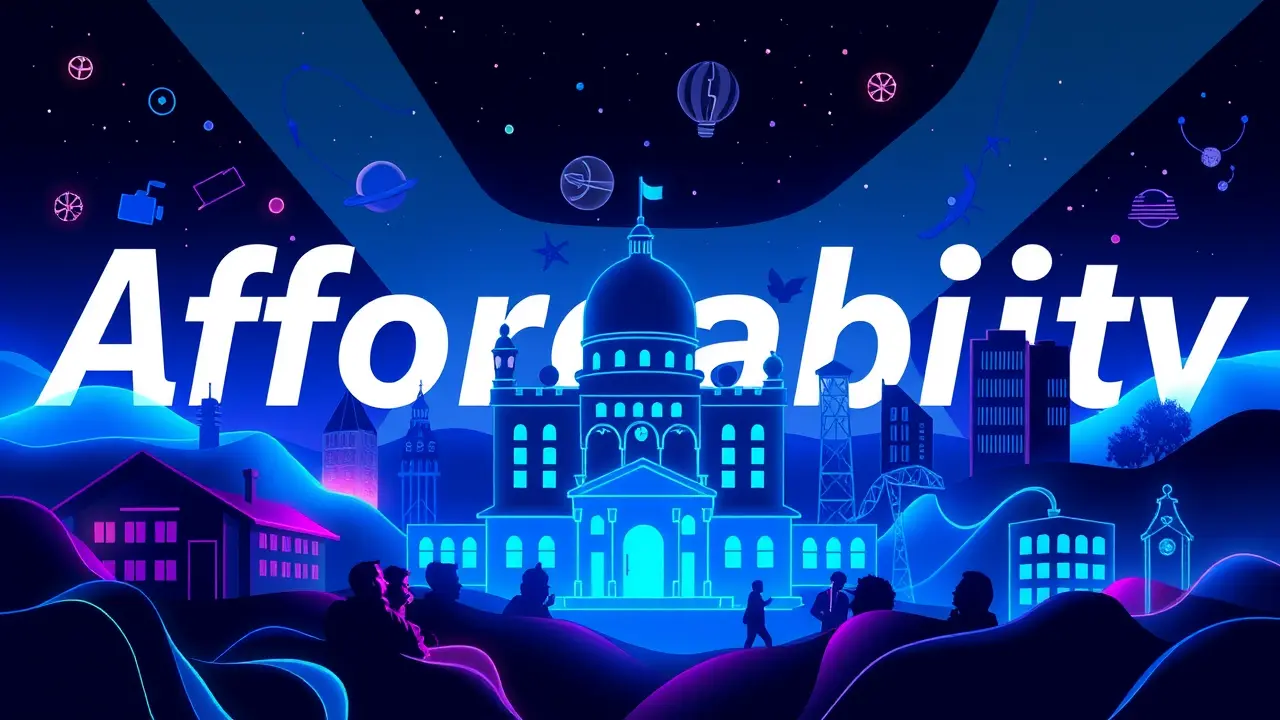
Politicsgovernments & cabinetsPolicy Agendas
Democrats Embrace Affordability as Central Political Mantra
RO
Robert Hayes
8 hours ago7 min read1 comments
The political landscape has decisively shifted, with 'affordability' emerging as the central, unifying mantra for the Democratic Party, a strategic pivot reminiscent of historical realignments around core economic anxieties. This transformation was catalyzed by the insurgent victory of Zohran Mamdani in New York City’s mayoral race, a campaign that successfully channeled widespread voter frustration over the cost of living into a potent political force.In rapid succession, the party's leading figures have raced to adopt the lexicon. Massachusetts Senator Elizabeth Warren authoritatively declared affordability the 'central reason to be a Democrat,' while California Governor Gavin Newsom has anchored his ambitious state housing reforms and a pioneering plan to manufacture generic insulin pens under the same banner.Minnesota Attorney General Keith Ellison further cemented the trend, launching his reelection bid with the resonant slogan 'Afford your life. ' This concerted embrace marks a significant departure from the party's recent posture and signals a belated, yet urgent, recognition of the electoral peril posed by ignoring the daily financial pressures on American families.Beneath this surface consensus, however, lies a fractious and fundamental debate over the root causes of the crisis, exposing the party's enduring ideological schisms. One faction, championing the 'Abundance' theory popularized by commentators like Ezra Klein, argues that government-imposed supply constraints—from restrictive zoning laws to slow permitting processes—are the primary bottleneck, preventing the construction of sufficient housing, energy, and infrastructure.In a parallel camp, populists point an accusatory finger at corporate greed and weakened antitrust enforcement, alleging that monopolistic practices and algorithmic price-setting tools like RealPage allow corporations to artificially inflate costs with impunity. Yet another group contends that the decimation of labor unions and the resulting stagnation of wages for decades are the core issues, a problem of broken incomes rather than broken markets.Rather than synthesizing these views, each camp has largely entrenched, treating the diagnosis as a zero-sum political battle. Into this fray steps the Economic Security Project (ESP) with a deliberate, analytical framework intended to bridge these divides.Their report, co-authored by Mike Konczal, presents a comprehensive, non-hierarchical analysis that categorizes the affordability crisis into two overarching domains: dysfunctional markets and insufficient incomes. On the market side, ESP identifies three key failures: 'gatekeepers' like pharmaceutical companies stacking patents or NIMBYs blocking housing to constrain supply; 'fragmented markets' that leave rural areas without essential services like hospitals; and 'manipulated signals' such as pervasive junk fees and algorithmic pricing that obscure true costs from consumers.On the income side, the analysis highlights 'life-cycle mismatches' where major expenses like childcare peak when earnings are lowest; deep-seated inequality that has seen productivity soar 83% since 1979 while wages grew a meager 29%; and the lasting scars of economic shocks that can wipe out years of a worker's lifetime earnings. This framework, which builds upon earlier work by Jared Bernstein, Chair of Biden's Council of Economic Advisers, and economist Neale Mahoney, consciously refuses to rank these causes, a tactical choice that invites validation from all factions but also prompts pointed criticism.Matt Bruenig of the People’s Policy Project, for instance, argues that while the logic is sound, the framework 'badly misweights the causes,' contending that 'income distribution dwarfs everything else. ' This avoidance of prioritization raises a profound strategic question for the party: should the goal be to fix markets through competition and deregulation, or to replace their function altogether with universal guarantees, such as social housing or single-payer healthcare? The term 'affordability' itself carries this historical tension; a decade ago, it was often dismissed by the progressive left as a squishy compromise that promised mere market participation instead of the bold universality of programs like Medicare-for-all.The fact that a progressive organization like ESP now champions 'affordability' while explicitly invoking Social Security-style guarantees indicates an attempted synthesis, a belief that fixing markets and providing universal goods are complementary, not contradictory, endeavors. The optimistic interpretation is that the left has matured beyond a false binary.The pessimistic read, however, is that 'affordability' serves as a strategic ambiguity, a 'do everything' slogan that risks defaulting to politically easier market-based solutions while deferring the harder fight for transformative universal programs. As Konczal himself conceded when pressed on when to guarantee versus when to merely make affordable, 'It depends. ' The true test of this unifying framework will not be in its high-level analysis, but in the sector-specific policy proposals ESP promises for 2026, where the party's philosophical divisions over resource allocation and the very role of government will be impossible to sidestep any longer.
#affordability
#Democratic Party
#economic policy
#cost of living
#housing
#featured
Stay Informed. Act Smarter.
Get weekly highlights, major headlines, and expert insights — then put your knowledge to work in our live prediction markets.
© 2025 Outpoll Service LTD. All rights reserved.